Daniel Strain
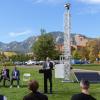 At an event on campus, engineers showed off a laser-based technology that can take a whiff of the air around oil and gas operations, then spot leaking greenhouse gasses in real time.
At an event on campus, engineers showed off a laser-based technology that can take a whiff of the air around oil and gas operations, then spot leaking greenhouse gasses in real time.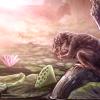 The new mammal lived in Colorado 70 to 75 million years ago—a time when a vast inland sea covered large portions of the state, and animals like sharks, turtles and giant crocodiles abounded.
The new mammal lived in Colorado 70 to 75 million years ago—a time when a vast inland sea covered large portions of the state, and animals like sharks, turtles and giant crocodiles abounded. Amendment 80, which Colorado voters will decide on this election, could lead to a flurry of new lawsuits across the state, says legal scholar Kevin Welner.
Amendment 80, which Colorado voters will decide on this election, could lead to a flurry of new lawsuits across the state, says legal scholar Kevin Welner.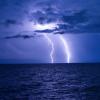 When lightning cracks on Earth, especially high-energy electrons may fall out of Earth's inner radiation belt, according to a new study—an electron "rain" that could threaten satellites, and even humans, in orbit.
When lightning cracks on Earth, especially high-energy electrons may fall out of Earth's inner radiation belt, according to a new study—an electron "rain" that could threaten satellites, and even humans, in orbit.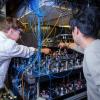 Quantum physicists at CU Boulder and the National Institute of Standards and Technology are paving the way for new kinds of optical atomic clocks, devices that track the passage of time by measuring the natural “ticking” of atoms.
Quantum physicists at CU Boulder and the National Institute of Standards and Technology are paving the way for new kinds of optical atomic clocks, devices that track the passage of time by measuring the natural “ticking” of atoms.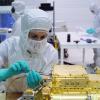 In just a few weeks, NASA’s Europa Clipper spacecraft will begin its long journey through space, traveling nearly 1.8 billion miles over the span of six years. On board will be the SUrface Dust Analyzer, a gold-plated, bucket-shaped instrument designed and built by a team from Colorado.
In just a few weeks, NASA’s Europa Clipper spacecraft will begin its long journey through space, traveling nearly 1.8 billion miles over the span of six years. On board will be the SUrface Dust Analyzer, a gold-plated, bucket-shaped instrument designed and built by a team from Colorado.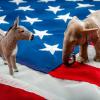 If you have a relative or neighbor you disagree with about politics, you may not be able to change their mind, says CU Boulder’s Matthew Koschmann. But you can still have a civil conversation and maybe even understand each other a little better.
If you have a relative or neighbor you disagree with about politics, you may not be able to change their mind, says CU Boulder’s Matthew Koschmann. But you can still have a civil conversation and maybe even understand each other a little better.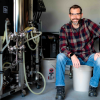 If there’s anything that unites humans, it’s kicking back with a cool pint, says Travis Rupp, also known as the “Beer Archaeologist.” He weighs in on the age-old practice in the inaugural edition of CUriosity, a new series from CU Boulder Today.
If there’s anything that unites humans, it’s kicking back with a cool pint, says Travis Rupp, also known as the “Beer Archaeologist.” He weighs in on the age-old practice in the inaugural edition of CUriosity, a new series from CU Boulder Today.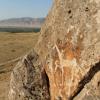 A new, wide-ranging exploration of human remains casts doubt on a long-standing theory in archaeology known as the Kurgan hypothesis—which, among other claims, suggests that humans first domesticated horses as early as the fourth millennium B.C.
A new, wide-ranging exploration of human remains casts doubt on a long-standing theory in archaeology known as the Kurgan hypothesis—which, among other claims, suggests that humans first domesticated horses as early as the fourth millennium B.C.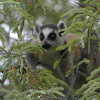 Predators not native to Madagascar, such as feral dogs and cats, may pose a serious threat to lemur species—many of which are already facing extinction on this African island.
Predators not native to Madagascar, such as feral dogs and cats, may pose a serious threat to lemur species—many of which are already facing extinction on this African island.


